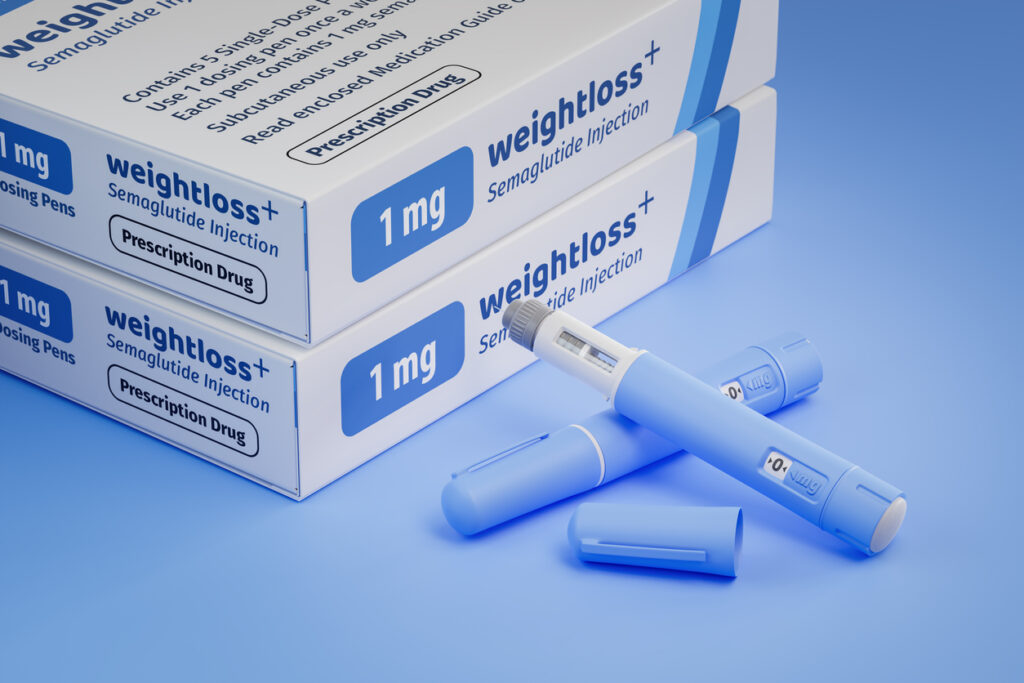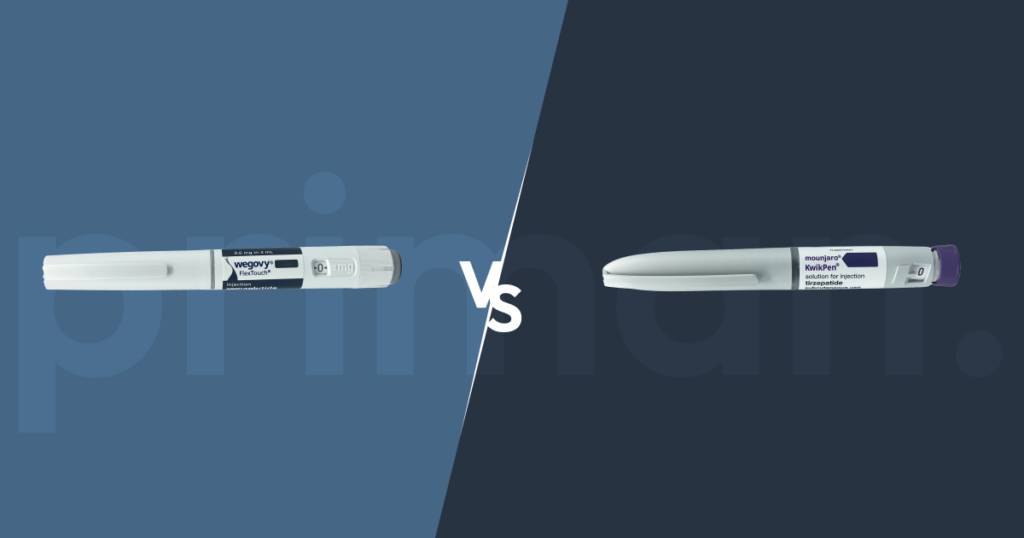Ozempic (semaglutide) has become a popular name in weight loss circles. Originally prescribed for type 2 diabetes, it’s increasingly used “off-label” to manage weight.
Ozempic for weight loss Uk – does it really help lose weight?
Let’s explore the pros, cons, and considerations before you embark on this path

Understanding Ozempic: What is Ozempic & How Does it Work?
Ozempic belongs to a class of medications called glucagon-like peptide-1 (GLP-1) receptor agonists. GLP-1 is a natural gut hormone that regulates appetite and blood sugar. Ozempic mimics GLP-1’s actions, leading to:
- Increased satiety: You feel fuller for longer, reducing calorie intake.
- Slowed gastric emptying: Food stays in your stomach for a longer duration, further promoting satiety.
- Improved blood sugar control: Beneficial for those with type 2 diabetes.
Ozempic (semaglutide) is a prescription medication approved by the Medicines and Healthcare products Regulatory Agency (MHRA) to help adults with type 2 diabetes manage their blood sugar levels, alongside diet and exercise. It’s important to note that Ozempic is not a weight-loss drug, although weight loss can be a side effect.
Ozempic for Weight Loss: Dosing and What to Expect
Ozempic comes in pre-filled pens with different doses: 0.25mg and 0.5mg (red pen), 1mg (blue pen), and 2mg (yellow pen). Clinicians typically start with the lowest dose (0.25mg) for 4 weeks, then gradually increase it over several months based on your response. The maximum dose is 2mg.
Starting Low and Going Slow:
- You’ll likely begin with 0.25mg weekly injections. This dose may already help with weight loss by curbing your appetite.
- Clinicians may raise your dose to 0.5mg or 1mg after 4 weeks if needed, aiming for better blood sugar control (if diabetic) and potentially greater weight loss.
- The 2mg dose is the highest available and is considered the maintenance dose.
Important Points:
- Never adjust your dose without consulting your healthcare professional.
- Side effects: Some people experience side effects, especially when starting or increasing the dose. Sticking with a lower dose for longer can help your body adjust and minimise these effects.
- Limited weight loss: If you haven’t lost at least 5% of your body weight after reaching the maximum dose, discuss alternative treatments with your clinician.

Ozempic and Wegovy: Are they the same medication?
Yes, Wegovy and Ozempic are similar medications, but with key differences. Both Wegovy and Ozempic contain the same active ingredient semaglutide, a medication that helps regulate blood sugar and appetite. The key differences is:
- Ozempic: Primarily used to treat type 2 diabetes in adults by helping control blood sugar levels. It’s also increasingly prescribed for weight management, but this is considered “off-label” use in the UK.
- Wegovy: Licensed for weight management in adults with obesity (body mass index of 35 or more) or those overweight (BMI of 27 to 34.9) with at least one weight-related health condition like type 2 diabetes or high blood pressure.
Pros of Ozempic for Weight Loss
Research suggests Ozempic can be a powerful tool for weight management, offering several potential benefits:
- Significant weight loss: Studies show Ozempic users can achieve an average weight loss up to 5-15% of their body weight, results often achieved with lifestyle modifications.
- Improved blood sugar control: For individuals with type 2 diabetes, Ozempic offers the dual benefit of weight management and blood sugar regulation.
- Reduced risk of cardiovascular disease: Ozempic may lower blood pressure and improve cholesterol levels, potentially reducing the risk of heart disease, a common concern for overweight individuals.
- Appetite suppression: Ozempic can significantly curb cravings and hunger pangs, making it easier to stick to a calorie deficit.
Cons of Ozempic for Weight Loss
- Off-Label use: In the UK, Ozempic is only licensed & MHRA approved for type 2 diabetes management. Using it for weight loss is considered “off-label,” and long-term safety data in this context is limited.
- Side effects: Ozempic may cause some temporary side effects like many medications, especially when you first begin using it. These are usually mild and tend to go away as your body adjusts to the medication.
- The most common side effects include nausea, vomiting, diarrhoea, decreased appetite, indigestion, constipation, stomach discomfort, and fatigue.
- In rare cases, more serious side effects can occur, such as gallbladder problems, severe inflammation of the pancreas, vision changes, or kidney injury. Allergic reactions are also uncommon.
- Overall, studies suggest that Ozempic is well-tolerated and has a safety profile similar to other GLP-1 receptor agonists, which are medications used for long-term blood sugar and appetite control.
Important Considerations Before Taking Ozempic
While Ozempic boasts promising results, it’s crucial to address potential drawbacks and considerations:
- Cost: The cost can vary depending on dosage and insurance coverage.
- Not a magic bullet: Ozempic works best alongside lifestyle changes like healthy eating and exercise. It’s not a substitute for a sustainable weight loss plan.
- Not suitable for everyone: Ozempic is not recommended for pregnant or breastfeeding women, individuals with a history of pancreatitis or medullary thyroid cancer, and those with severe allergic reactions to its components.
Consulting Your Healthcare Professional is Key
Considering Ozempic for weight loss? Here’s why consulting your clinician is paramount:
- Eligibility Assessment: Your clinician can assess if you’re a suitable candidate for Ozempic based on your medical history, BMI and weight goals.
- Dosage Determination: The appropriate dosage will be determined by your clinician, considering factors like your weight and individual needs.
- Monitoring and Management: Regular check-ups are crucial to monitor for side effects and ensure Ozempic is working effectively within your weight loss plan.
- Alternative Options: Your clinician can discuss alternative weight loss strategies, including diet, exercise, and other medications, to create a personalised plan.
Take charge of your weight loss with Priman!
References
- British Heart Foundation (2024) Weight loss drugs could have cardiovascular benefits, new research shows, British Heart Foundation. Available at: https://www.bhf.org.uk/what-we-do/news-from-the-bhf/news-archive/2024/may/weight-loss-drugs-could-have-cardiovascular-benefits-new-research-shows
- Ghusn, W. et al. (2022) “Weight loss outcomes associated with semaglutide treatment for patients with overweight or obesity,” JAMA network open, 5(9), p. e2231982. doi: 10.1001/jamanetworkopen.2022.31982.
- Healthcare products Regulatory Agency (2023) Falsified Ozempic (semaglutide) pens identified at two wholesalers in the UK, Gov.uk. Available at: https://www.gov.uk/government/news/falsified-ozempic-semaglutide-pens-identified-at-two-wholesalers-in-the-uk
- New Medicine Assessment Semaglutide (2018) Nhs.uk. Available at: https://www.lancsmmg.nhs.uk/media/1139/semaglutide-new-medicine-assessment.pdf
- Ozempic (2024) Europa.eu. Available at: https://www.ema.europa.eu/en/medicines/human/EPAR/ozempic
- Wegovy 0.25 mg, FlexTouch solution for injection in pre-filled pen – Summary of Product Characteristics (SmPC) – (emc) (no date) Org.uk. Available at: https://www.medicines.org.uk/emc/product/13799/smpc









